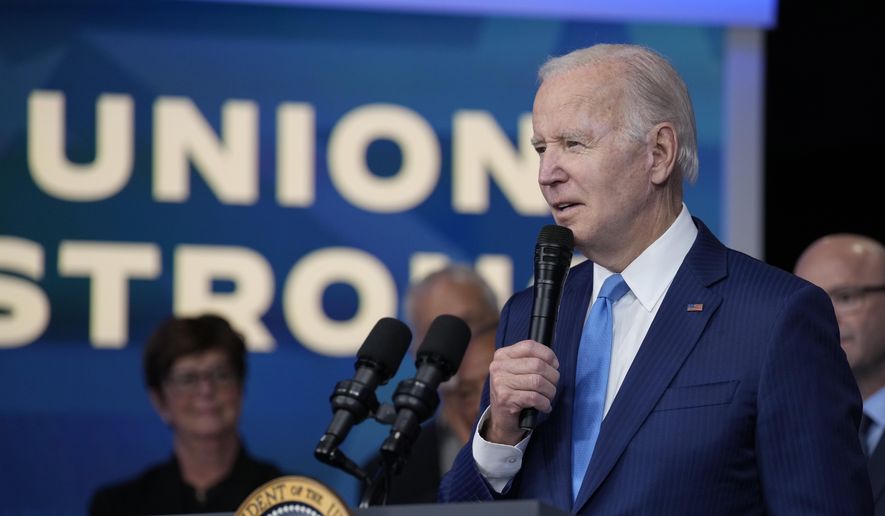Union leaders complained Wednesday that despite having their longtime champion President Biden in the White House, the labor movement is being stymied by corporations from using union-busting tactics with impunity.
They leveled that charge at a Senate Health, Education and Labor Committee hearing, blaming the ever-shrinking union membership on the lack of federal muscle to combat union holdouts such as Starbucks and Walmart.
“The percentage of American workers who support unions is at an all-time high. But they are unable to join unions, form unions or get a first contract because, in America, the game is rigged,” said Teamster President Sean O’Brien.
Union membership in the U.S. was at 10.1% at the end of 2022, according to the Labor Department. The figure is the lowest recorded since the federal government began keeping such statistics in the 1950s when more than 30% of the workforce was unionized.
The longtime decline of private sector unions has continued even as union organizers make some headway in the retail, service and technology industries. The National Labor Relations Board, which is tasked with overseeing and meditating labor disputes, saw a 53% jump in new union petitions last year compared to 2021.
The labor chiefs said, that while there is momentum for unionization, the political and legal environment is stacked against them.
SEE ALSO: White House: Biden budget to cut deficit by $3 trillion through tax hikes
“Even when workers get creative and organize to make a change, corporations and their lobbyists spend millions to squash the gains workers make,” said Mary Kay Henry, the president of the Service Employees International Union.
Organized labor cites the ability of big corporations to hire consultants and strategists to undercut unionization drives. They also accused companies of illegally firing or harassing employees who are trying to unionize.
AFL-CIO President Liz Shuler said corporations could indulge in such tactics because federal penalties were minuscule compared to the cost of having a unionized workforce.
“You get a bigger violation for breaking fishing laws in most states than illegally busting unions,” she said. “It’s just a cost of doing business [for companies], they hire-union-busting consultants, they just bake it into their business model.”
Mrs. Shuler further argued that companies benefited from backlogs and delays caused by staffing issues at the National Labor Relations Board. To shift the balance of power to unions, labor leaders and congressional Democrats are pushing the PRO Act.
The bill would nullify state right-to-work laws, prohibit companies from permanently replacing striking workers, and increase penalties for firing labor organizers. It would also reclassify independent contractors as regular employees who are bound by conventional workplace protections.
“You can be pro-union or anti-union, but we have to establish today is that workers have the constitutional right to form a union,” said Senate Labor Chairman Bernard Sanders, a democratic socialist from Vermont.
The Democratic-backed PRO Act has languished in Congress since 2019. It has next to zero chances of advancing in the current Congress given the Republicans’ control of the House and the narrowly divided Senate.
Critics describe the legislation as a payback to labor unions that traditionally supply Democrats with campaign muscle.
“The PRO-Act is not pro-worker, it’s just pro-big union,” said Sen. Bill Cassidy, Louisiana Republican. “It would make workers vulnerable to forced unionization. If they want to unionize, I’m for them, it’s a constitutional right, but if they choose not to they shouldn’t be coerced.”
• Haris Alic can be reached at halic@washingtontimes.com.




Please read our comment policy before commenting.